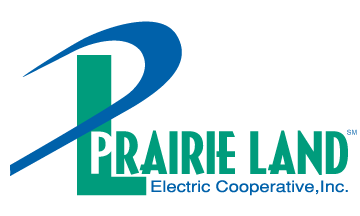During February 2021, every state in the Southwest Power Pool (SPP) had historic, extreme cold weather that increased the demand for electricity and impeded the ability to generate it. Controlled service interruptions had to be implemented across the SPP for the first time in its 80-year history, and the cost to purchase power increased exponentially.
While it was hard to imagine the magnitude of the cold weather event just a few weeks ago, Prairie Land is facing unprecedented costs associated with the extreme cold weather from February. Prairie Land is not alone; many electric and gas utilities across the Mid-West incurred unprecedented cost increases.
Increased February wholesale power costs
Prairie Land's wholesale power bill increased over $14 million in February--more than six times higher than a normal monthly billing. While many components factor into the cost of purchased power, the main drivers of the increase in February were a record demand for natural gas coupled with a reduced supply. Natural gas is one of the primary resources used to generate electricity at power plants, and as a commodity, it responds to supply and demand to determine the selling price. The reduced supply and high demand situation caused historic high natural gas prices. Before the winter storm, electric providers had access to natural gas ranging from $2.75 per MMBtu to $4.15 per MMBtu. During the winter storm, natural gas prices ranged from $339 per MMBtu to $999 per MMBtu.
"We know that news reports about astronomical electric bills have our members fearing how much the energy emergencies in February will increase their bills," said Kirk Girard, CEO. "But Prairie Land is committed to doing whatever it needs to find an equitable and manageable solution for our members." Girard also pointed out the extraordinary, voluntary efforts that Prairie Land members made to conserve energy. These efforts helped minimize the number and lengths of the SPP's energy emergency alerts and service interruption orders. "This truly made a big difference, and we can't thank our members enough for the sacrifices they were willing to make to preserve the integrity of the grid."
What is a Power Cost Adjustment, and how is it billed?
Prairie Land electric rates include a cost per kilowatt-hour that is based upon an expected cost of purchased power. However, the actual cost per kilowatt-hour fluctuates from month-to-month dependent on wholesale power costs, including natural gas, wind, solar, coal, hydro, and nuclear generation. Those fluctuations are reflected on the member’s monthly billing through the Power Cost Adjustment (PCA); Prairie Land does not profit from the PCA as it is a direct pass-through from the power supplier. For most of the previous year (10 of the 12 months), the PCA on Prairie Land’s bills has been a credit due to purchased power costs being lower than expected. However, it reached record-highs during February.
How will Prairie Land minimize the financial impact to members?
Prairie Land understands that by assessing this extraordinary power cost in a single month, the PCA could cause many members financial hardship. In fact, assigning the full amount of the February event could result in members receiving bills totaling 3 to 5 times higher than normal. An average residential member with a typical bill of $125 (1,000 kWh usage) would see an additional $305 on the February bill. The Board of Trustees voted in February to hold a rate meeting on March 23, 2021, with the intent to find an equitable and more manageable method to mitigate the immediate impact on Prairie Land members.
Board of Trustees approve Deferred Cost Ride (DCR)
To find a more manageable method to bill members for the extraordinary costs associated with the February winter weather event, the Board of Trustees unanimously voted to approve the February 2021 Deferred Cost Rider to lessen the immediate financial impact on Prairie Land members.
The rider allows the extraordinary costs to be broken into thirty-six (36) equal installments and will include carrying costs. The amortized expense will be added as a separate line item on members' monthly billing beginning on the April 2021 statement. The monthly bill statement will also include a message providing the number of installments remaining each month. An exception would be a member with a total DCR balance of $36 or less. In that case, the member will only have one charge on the April billing statement, with no additional installments.
“Our members and Prairie Land are one and the same,” explained Girard, “and we only succeed if our members succeed. While Prairie Land cannot control cost impacts such as fuel prices, we are committed to implementing an equitable and manageable solution to mitigate any direct impacts to our members and ensure our rates remain affordable. We will also work with individual members to make sure payment options are in place, and bills are manageable.”
If any Prairie Land member is concerned about being able to pay an electric bill at any time, please call the Prairie Land office toll-free at 1-800-577-3323 and ask about payment assistance options available to members.
Click here for more details about the DCR and how it will affect members' bills.
